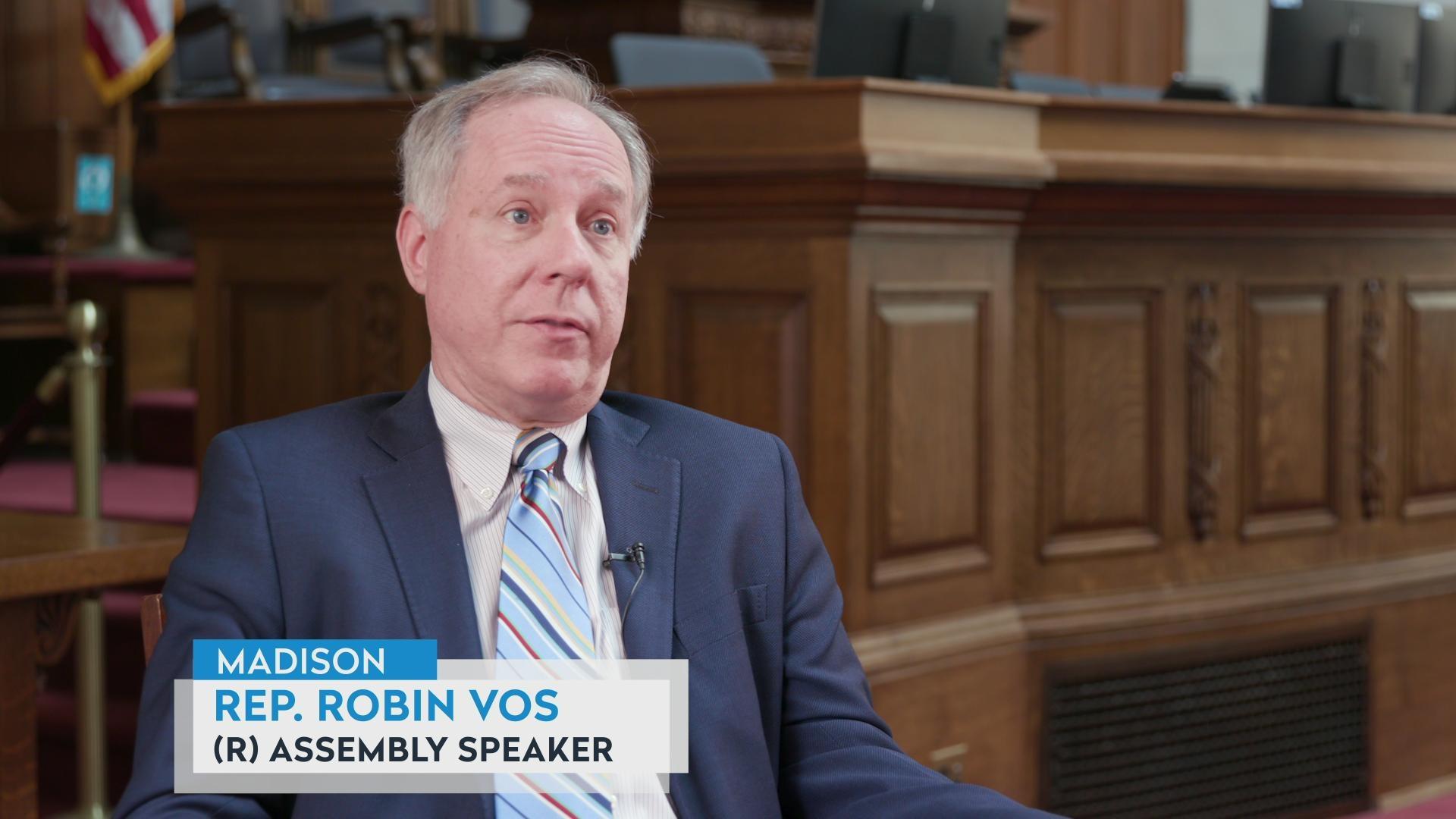Frederica Freyberg:
Districts across Wisconsin are increasingly relying on voters to approve additional funding for their schools because of strict revenue limits and stagnant state funding. Over the last three elections, there were 249 referenda on local ballots seeking tens of millions of dollars, 179 of them passed. Now, a new legislative bill would prohibit a school board from going to referendum for borrowing other than for maintenance expenses if the district has low reading and math test scores. For larger districts, the scores could be no lower than 60 out of 100. For smaller districts, no lower than 50. The small district of Tri-County in Plainfield, which has fewer than 600 students, went to referendum this spring for $1.45 million. It passed. But Tri-County is right on the cusp of the test score cut-off. We check in with its superintendent about his take on the proposed bill and the needs of his district. Jamie Delkowski joins us now and thanks for being here.
Jamie Delkowski:
Hi Frederica. Thanks for having me.
Frederica Freyberg:
What is your take on the proposed bill prohibiting referendum and then tying it to test scores?
Jamie Delkowski:
Honestly, Frederica, it’s a little bit difficult for me to understand. In our district, a recent document from the Legislative Fiscal Bureau showed that our district, out of 421 districts in the state of Wisconsin, has one of the lowest revenue limits per student in the state. We’re about tenth from the bottom, which means that I get about $10,149 per student, where my neighbor 20 miles down the road gets closer $13,000 per student. Why is that? Because they passed referendum. They’ve gone to their taxpayers and asked for that support. It’s a little hard to understand how, when we are asked to build the same product, the same successful student with far less dollars per student, why they would want to limit us in this way. It kind of just makes sense to me, Frederica, that if you’re limiting our revenues even further, it’s difficult to expect a more successful product, and it would have been very detrimental for us.
Frederica Freyberg:
Because your most recent test scores sit at 50.3 out of that 100, according to the DPI. Do you view this kind of test score cut-off as more of an incentive to boost those or more punishment?
Jamie Delkowski:
Oh, that’s a good question. Just off the cuff, it definitely feels more like a punishment to us. I mean, let’s be honest. We want higher test scores. We want our students to succeed. And one of the things about state testing, it doesn’t measure the success of our district in every way. We have one of the most successful districts as far as diversity is concerned in the state of Wisconsin. It is extremely rare to have a district with 30 to 35% first and second generation Latino and Hispanic immigrants that are extremely successful socially. Successful academically. I mean, our graduates are going to University of Chicago, University of Madison. We have over half a million dollars a year in donors who support our children going off to four and two-year colleges. It’s an amazing district doing amazing things, but it doesn’t show in our test scores, and now that we’ve passed a referendum, a referendum that has never passed in our district before, we’re able to purchase the more modern curriculums in math and reading that our district needs to bring those test scores up.
Frederica Freyberg:
I was going to ask, why did your district go to referendum? Why did you need the $1.45 million that was passed?
Jamie Delkowski:
Yeah, and the answer is, to support the growth of our students and the success of our students. We have — my boiler, my heating system is nearly 70 years old. Our roof that is supposed to last 10 to 15 years is in its 32nd year. We haven’t been frivolous with our taxpayer dollars. We’ve been extremely cognizant of being careful with our community funds, but we’ve also had to say, let’s wait on that latest and greatest math curriculum for our elementary school. Let’s hold off on the newest reading curriculum because we didn’t have the funds to do it. The state set up a system in the early ’90s in which they said school boards can no longer simply raise the revenue limit per student. They made a fair assessment. You can do that, but you need to go to every taxpayer. That’s called a referendum. This district didn’t do that for 30 some years, but when we did, our community said “yes,” we want that for our students and we understand our taxes are going to go up for it. I can’t think of — I can think of several ways that might be more fair when one district gets 20% more than another district in the state of Wisconsin to build the same product, but we needed this money. We had a $950,000 deficit on a $10 million budget. This year that we cut down by increasing class sizes, by not replacing retiring staff. If we had not passed this referendum, this community school district of generations would not be able to survive for more than probably about a year to two years, had we not had this opportunity.
Frederica Freyberg:
With less than a minute left, aside from the money raised from the referendum, how optimistic are you that budget writers will boost K-12 state funding to help going forward?
Jamie Delkowski:
Well, after the last few years, my optimism is waning. We’re very hopeful that the budget models that help us recover from the last two years of zero dollars per year in the last biennium for schools, we’re hoping and praying that there will not only be an assessment that is fair for this year but helps us recover for those last two years. And listen, Frederica. We passed a referendum. We’re a small, rural agricultural district. We went to our taxpayers and honestly told them, we’re not going for a football stadium. We are literally making up a little bit of loss, but we are very hopeful that the legislature and the governor will see the needs of the schools.
Frederica Freyberg:
All right. We leave it there. Jamie Delkowski, thanks very much.
Jamie Delkowski:
Thank you so much.
Search Episodes
News Stories from PBS Wisconsin

Donate to sign up. Activate and sign in to Passport. It's that easy to help PBS Wisconsin serve your community through media that educates, inspires, and entertains.
Make your membership gift today
Only for new users: Activate Passport using your code or email address
Already a member?
Look up my account
Need some help? Go to FAQ or visit PBS Passport Help
Need help accessing PBS Wisconsin anywhere?

Online Access | Platform & Device Access | Cable or Satellite Access | Over-The-Air Access
Visit Access Guide
Need help accessing PBS Wisconsin anywhere?

Visit Our
Live TV Access Guide
Online AccessPlatform & Device Access
Cable or Satellite Access
Over-The-Air Access
Visit Access Guide
 Passport
Passport


















Follow Us